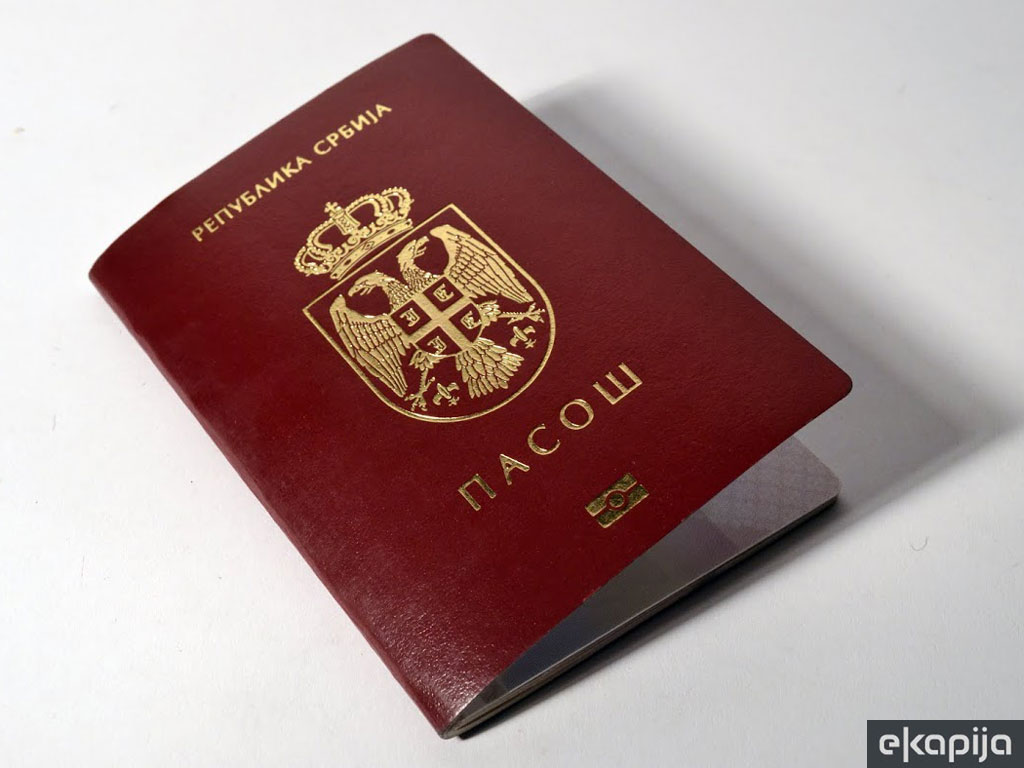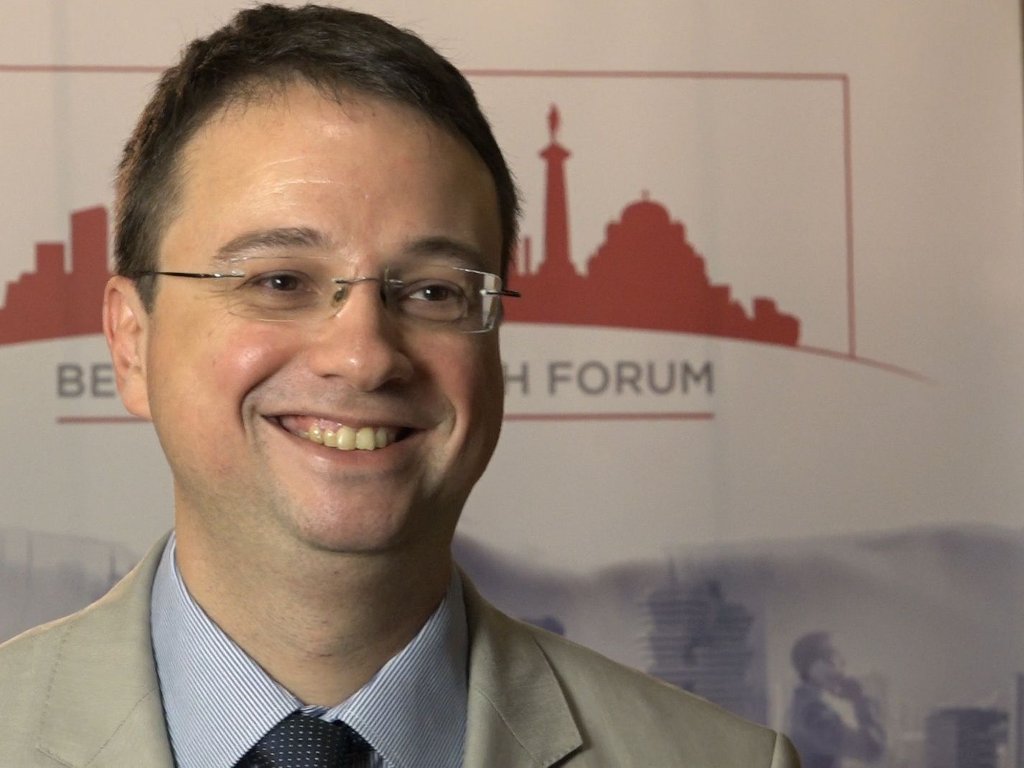Serbian passport increasingly more interesting to rich foreigners – First family office in Belgrade to open in 2017
 Thursday, 02.11.2017.
Thursday, 02.11.2017.
 11:59
11:59

Many states have implemented so-called family offices for this reason. These offices provide all services for clients looking to reside in the country in question. This entails services related to immigration, acquiring visas and other documents, the status in the new country, founding a company, book keeping, tax consulting, real estate, finding a school for their children...
Serbia doesn't have a program of acquiring citizenship through investments, and the legislation which would regulate this is not harmonized. Nevertheless, the first family office in Belgrade might open by the end of 2017, as announced for eKapija by Milan Dobrosavljevic, one of the founders of Alpha Partners, a company headquartered in Andorra, which has the Belgrade Legal Consultants office, which provides the said services.
As our interviewee points out, they are planning to open the first official family office in Serbia in cooperation with their partners from Russia. Until then, they will continue providing services to interested persons based on their practice so far.
– Alpha Partners provides clients in Serbia with a full service otherwise provided by a family office in the systems in which such organizations exist. The process takes at least six months – Dobrosavljevic says.
As he explains, Serbian laws are not adequate when it comes to getting a passport through investments, as they were adopted in a period in which Serbia was neither open to foreigners nor interesting to them.

Regardless of the lacking procedures, however, rich individuals are interested in Serbia, and Dobrosavljevic cites at least three reasons for this. First of all, there's the low personal income tax, which amounts to 15% and is linear, meaning that Serbia's tax solutions benefit rich people. Second, there is a limit to the income for which contributions are calculated, which also benefits individuals with a high income. Finally, Serbia is not part of the automatic reporting system that exists in the OECD countries. More precisely, these countries no longer have any banking secrets, that is, secret accounts, and tax administrations get direct reports whenever their citizens open non-resident accounts in another country.
– Seeing how we are late in everything, we are not part of this agreement, which makes us interesting to individuals who want to keep their privacy, to keep it a secret as to how much money they have... One of the reasons why someone might come here is the fact that our passport currently ranks very well. Along with Mauritius and Seychelles, we are one of the three countries whose passport enables visa-free travels to signee-countries of the Schengen Agreement, Russia and China. Furthermore, rich Russians are very interested in moving to Serbia, and the majority of the clients of our office in Andorra are Russians.
Due to the confidentiality agreement, Dobrosavljevic cannot disclose the identity of their clients in Serbia.
– These are, then, rich individuals, not companies. There are people who are already here, and some of them are managers of big foreign companies – our interviewee says and points out that they get contacted by people from truly incredible destinations.
Some of these investors gathered at the recently held Belgrade Wealth Forum, which featured more than 160 guests from 20 countries.

– The direct benefit is that the money goes to the budget, and the indirect benefit is that the foreigner pays taxes, employs people, invests... There are individuals who are very interested in getting our citizenship, and the state is losing great amounts of money by not having such a program.
Dobrosavljevic says that the state has been inadequately promoting Serbia for years and that it has failed to recognize the importance of the implementation of this program.
– Our Government has so far focused on presenting Serbia as a country suitable for investments by foreign companies. The emphasis is on low-educated workforce and state subsidies for new employments. We have advertised ourselves as a country of “slave workforce”, an entirely wrong concept, and we have also discriminated local investors by subsidizing foreign ones. There's never been a serious campaign saying that Serbia should be invested in and there also not enough efforts to promote Serbia as a destination for rich people to move to.
On the other hand, our interviewee points out, there are states which compete in drawing as many rich people as possible, since there are few people who are truly very rich. According to the statistics, there are 211,000 millionaires in the world, of which around 45,000 come from China and southeast Asia. Two thirds of rich individuals, around 70% of them, who are looking to move to new destinations, come from southeast Asia, 20% come from east Europe, whereas 10% come from Africa and the Middle East. Dobrosavljevic adds that the states with the biggest incomes from these services do not issue more than 1,000 citizenships a year.
K.S.
Most Important News
06.04.2024. | Agriculture
Preconditions for Placement of Fresh Blueberries and Dried Plums in Chinese Market Secured

16.04.2024. | News
Jovan Ciric, Leasing Director Retail MPC Properties – MPC Echo symbolizes our desire for good ideas and innovative endeavors to spread freely and bring about positive changes

16.04.2024. | News
10.04.2024. | Finance, IT, Telecommunications, Tourism, Sports, Culture
Creative Industry – What This Serbian Economy Sector Worth EUR 2 Billion Encompasses

10.04.2024. | Finance, IT, Telecommunications, Tourism, Sports, Culture
23.04.2024. | Finance
Mali: UK Export Finance interested in financing several projects in Serbia

23.04.2024. | Finance
16.04.2024. | News
Economy Fair in Mostar opens – 26 companies from Serbia exhibiting

16.04.2024. | News
23.04.2024. | Construction, Transport
Tender for first section of Belgrade-Nis fast railroad from Velika Plana to Paracin announced

23.04.2024. | Construction, Transport


 Izdanje Srbija
Izdanje Srbija Serbische Ausgabe
Serbische Ausgabe Izdanje BiH
Izdanje BiH Izdanje Crna Gora
Izdanje Crna Gora


 News
News








